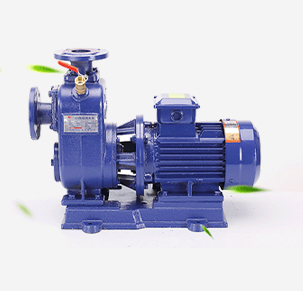Maori
- Afrikaans
- Albanian
- Amharic
- Arabic
- Armenian
- Azerbaijani
- Basque
- Belarusian
- Bengali
- Bosnian
- Bulgarian
- Catalan
- Cebuano
- Corsican
- Croatian
- Czech
- Danish
- Dutch
- English
- Esperanto
- Estonian
- Finnish
- French
- Frisian
- Galician
- Georgian
- German
- Greek
- Gujarati
- Haitian Creole
- hausa
- hawaiian
- Hebrew
- Hindi
- Miao
- Hungarian
- Icelandic
- igbo
- Indonesian
- irish
- Italian
- Japanese
- Javanese
- Kannada
- kazakh
- Khmer
- Rwandese
- Korean
- Kurdish
- Kyrgyz
- Lao
- Latin
- Latvian
- Lithuanian
- Luxembourgish
- Macedonian
- Malgashi
- Malay
- Malayalam
- Maltese
- Maori
- Marathi
- Mongolian
- Myanmar
- Nepali
- Norwegian
- Norwegian
- Occitan
- Pashto
- Persian
- Polish
- Portuguese
- Punjabi
- Romanian
- Russian
- Samoan
- Scottish Gaelic
- Serbian
- Sesotho
- Shona
- Sindhi
- Sinhala
- Slovak
- Slovenian
- Somali
- Spanish
- Sundanese
- Swahili
- Swedish
- Tagalog
- Tajik
- Tamil
- Tatar
- Telugu
- Thai
- Turkish
- Turkmen
- Ukrainian
- Urdu
- Uighur
- Uzbek
- Vietnamese
- Welsh
- Bantu
- Yiddish
- Yoruba
- Zulu
Telephone: +86 13120555503
Email: frank@cypump.com
Oct . 22, 2024 05:45 Back to list
lift pump for sewer
The Importance of Lift Pumps for Sewer Systems
In modern urban infrastructure, effective waste management is paramount to public health and environmental safety. One of the critical components in managing wastewater disposal is the lift pump system, particularly in sewer systems. Lift pumps play a vital role in transporting sewage and wastewater from lower elevations to higher ones, ensuring that waste reaches treatment plants efficiently.
The Importance of Lift Pumps for Sewer Systems
The functioning of a lift pump is relatively straightforward. It consists of a submerged motor and a pump that lifts the sewage to above ground level or to higher service points. When wastewater enters the lift station, the pump activates and propels the sewage through a discharge pipe. This process prevents sewage from stagnating and ensures that the system remains operational, especially during heavy rainfall or when the municipal sewer system is at capacity.
lift pump for sewer

The benefits of lift pumps extend beyond just the movement of wastewater. They contribute significantly to preventing environmental hazards. In communities without efficient lift pump systems, sewage can back up into homes, streets, or natural water bodies, creating health risks and ecological damage. Moreover, the installation of reliable lift pumps reduces the likelihood of odor issues and mitigates the risk of blockages caused by solids settling in low-lying areas.
However, like any machinery, lift pumps require regular maintenance to operate effectively. This includes routine inspections to check for wear and tear, ensuring that all components are functioning correctly, and cleaning to prevent clogs caused by debris. Neglecting this maintenance can lead to pump failures, which could result in costly repairs and significant health risks due to sewage backups.
In addition to traditional lift pumps, advancements in technology have led to the development of more energy-efficient and reliable pumps. Smart systems with monitoring capabilities allow for real-time data collection, helping municipalities manage water flow and identify potential issues before they become critical. These innovations not only optimize performance but also contribute to cost savings in energy and labor.
In conclusion, lift pumps are an essential part of sewer systems, particularly in uneven terrains. Their ability to move wastewater efficiently and reliably helps protect public health and preserve the environment. As urban areas continue to grow, integrating advanced lift pump technology will be crucial in ensuring effective wastewater management for future generations. Proper maintenance and innovative solutions will further enhance the resilience and efficiency of these systems.
-
High-Efficiency Submersible Effluent Pump for Sewage & Wastewater Solutions
NewsJul.08,2025
-
High Quality CH Warman Slurry Pump Factory - Leading Horizontal Slurry Pump Supplier
NewsJul.08,2025
-
Hot Sale Chemical Circulating Pump – Efficient & Durable Slurry Circulating Pump Solutions
NewsJul.08,2025
-
High-Efficiency Submersible Dredge Pump for Sand & Gravel Durable Dredge Slurry Pumps Solutions
NewsJul.07,2025
-
Wholesale Slurry Pump Impeller Supplier – High-Quality & Efficient Pump Parts for Enhanced Performance
NewsJul.07,2025
-
High-Efficiency Water Submersible Pumps Reliable Water Pump for Potable Water Supply
NewsJul.06,2025










